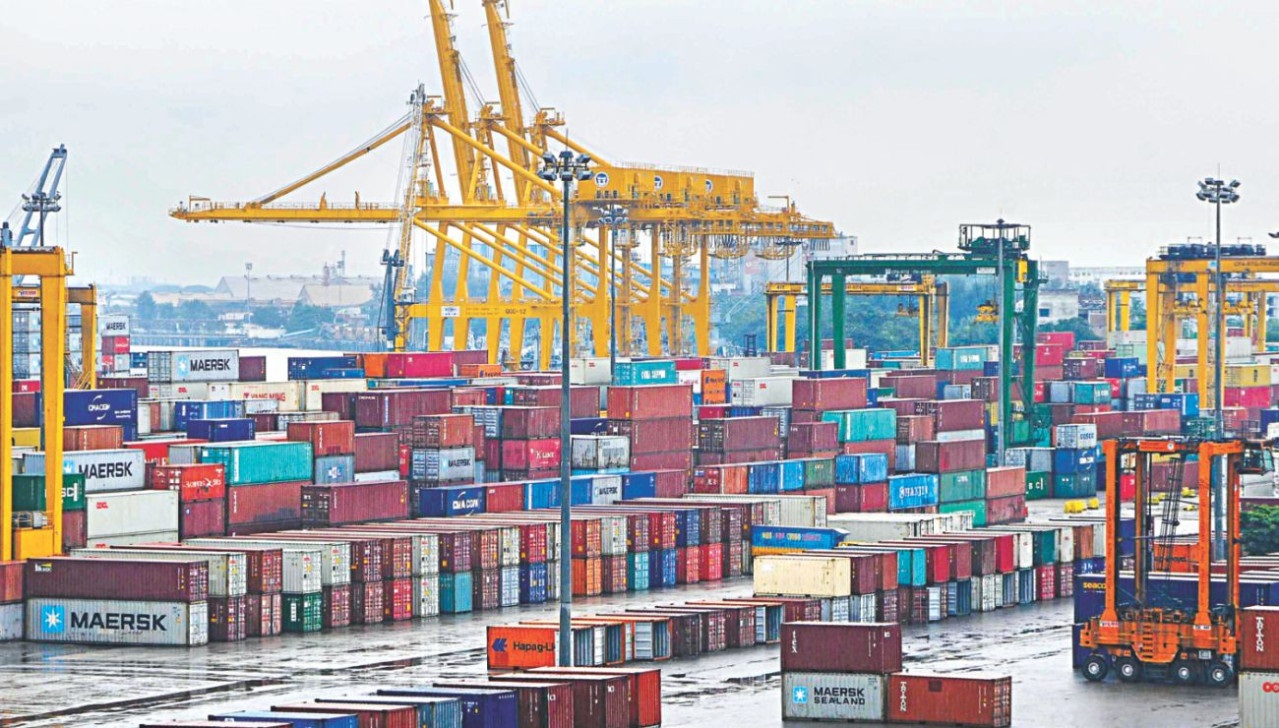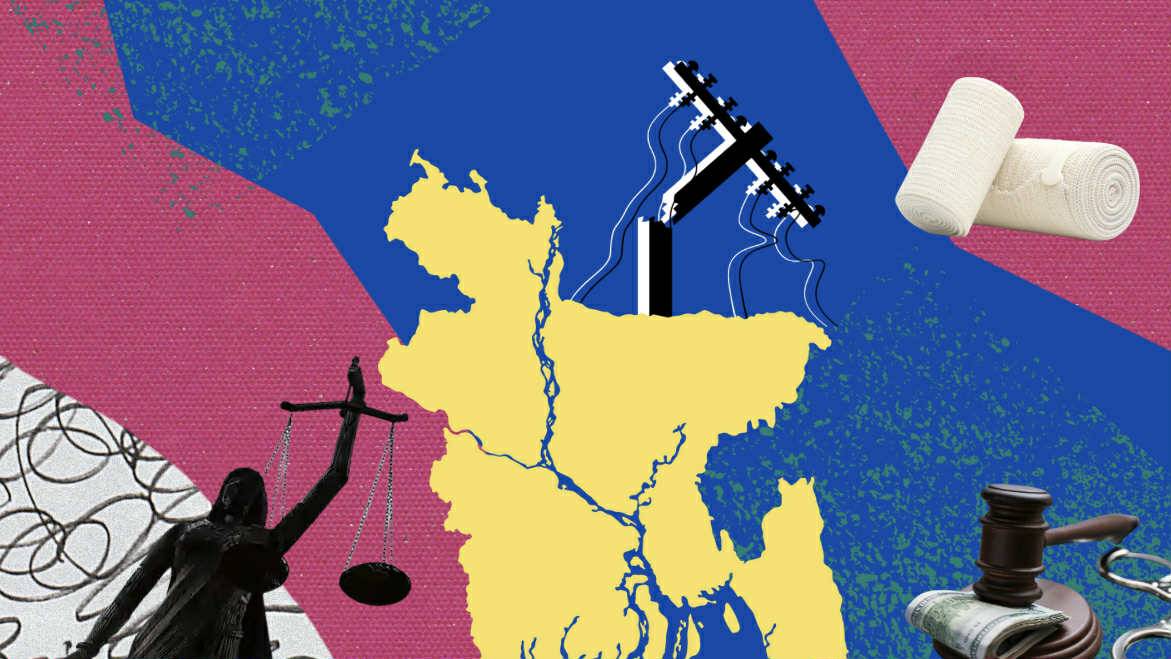The interim government’s troubling continuity

When the interim government took office in the aftermath of the mass uprising last year, the people of Bangladesh hoped to see a genuine change in perspective—a visible shift in certain areas. For instance, we expected a transition from irregularities in government administration to a system governed by rules; from secrecy and opacity to transparency and accountability. We hoped for financial discipline in place of corruption and waste. We expected institutional initiatives for the protection of human rights instead of continued violation. We also believed this government would refrain from entering into agreements that conflict with national interests, as previous governments had done, and that it would seek to create policies or institutional frameworks to prevent such harmful deals in the future.
But it is unfortunate that, after more than a year, in almost every single area where we expected betterment, this government has demonstrated not merely incompetence but something that cannot even be explained as inefficiency. It is not clear whether this government is truly serious about these issues, or if it simply lacks the intention to address them. Perhaps that is why we continue to see widespread human rights violations, violence, financial irregularities, waste of resources, and corruption.
Even more troubling is the fact that the government seems more focused on areas where it should not be undertaking any initiatives, such as making agreements that are not aligned with the country's interests. A major example of this is the case of the Chattogram port. During Sheikh Hasina's regime, an initiative was taken to hand over the port's main terminal to DP World, a state-owned company from the UAE. We heard that Hasina faced certain complications and needed to make compromises with Abu Dhabi, which served her specific political interests. The project was pushed via irregular means, without any tender or public consultation.
Naturally, we expected that once the interim government took power, it would begin by investigating why such a serious breach of public interest had taken place under the previous regime. The long-discussed reforms related to Chattogram port should have focused on expanding the domestic capacity for port management, including improvement of customs process and bureaucracy. That would have been the logical and expected course of action for this government.
Instead, there is now a striking insistence that the port's operations must be handed over to DP World. In other words, the "Sheikh Hasina project" must be implemented. Port workers, political groups, and experts have raised objections, backed by analysis and argument, and articles have been published in newspapers arguing against it, yet the government has offered no response or explanation. The chief adviser has made it clear that the port's operations must go to a foreign company.
It is remarkable that some of the government's current advisers, who once spoke eloquently about rules, regulations, and transparency before assuming office, are now supporting this move. They have not explained why a project conceived during the Hasina era must be implemented without a tender. A responsible official even mentioned making it "like the Singapore model." Yet, there is no example in Singapore of handing over national assets in such an opaque manner, without a tender, to a foreign entity. This government claims to be emulating the Singapore model, but its actions are the opposite: instead of building national capability, it is intent on transferring it to foreign companies, whereas, Singapore's state-owned national institutions are highly competent. It seems that the interim government is incapable to see any prospect for Bangladesh to develop its own capability as other countries have.
Several other questionable activities are unfolding in the Chattogram area. For instance, we have been witnessing corporate lobbies moving around and recent joint military exercises by Bangladesh and the US. These developments are raising questions due to the government's lack of transparency. Similar exercises took place during Hasina's regime, and many secret standing agreements since 1990s remain unexplained.
Furthermore, the government has failed to review, amend, cancel or even question the harmful or environmentally destructive projects initiated by the previous government. Take the Rampal coal-based power plant, for example, a project that poses grave threats to the Sundarbans and will significantly worsen climate change impacts across Bangladesh. It was widely expected that this project would be reviewed and scrapped. Yet, the interim government has taken no action whatsoever.
The agreement with India's Adani Group is another highly damaging contract, and again, the government shows no sign of withdrawing from it. Regarding the Rooppur Nuclear Power Plant, media reports, citing international surveys, have warned that due to inadequate institutional preparation, insufficient training, and questionable equipment quality, Bangladesh could face a catastrophic disaster if the project becomes operational. The government offers no explanation as to why such a dangerous project is still proceeding. Instead, it appears eager to continue with these projects and even sign new agreements.
This troubling tendency is evident elsewhere, too: in the fragile law and order situation amid rising mob violence; in the dominance of looters and grabbers seizing small parks, playgrounds, and rivers; in hill cutting; and in the extraction of sand and stones from rivers. Harmful projects identified by experts are continuing unabated, such as the construction of a Dhaka Elevated Expressway ramp at Panthakunja Park and Hatirjheel. The project risks damaging the park's biodiversity and harming Hatirjheel. Despite countless arguments, expert opinions, a public hearing, and a sit-in that lasted more than 160 days, the government has refused to amend the project.
When the High Court issued an order halting all construction following a writ petition, the government not only challenged the order but also sided with the company to resume work. The company continues construction in defiance of the High Court's order. This means the government is directly opposing the public and siding with corporate interests.
This is deeply troubling and serves as an example of how the expectations of the people have been betrayed again. It is profoundly objectionable. The people had hoped that this government would break with the past tendencies and chart a new course. In the face of this failure, the people must surveil the government's work and raise their voice when necessary. This is the only way forward now.
Anu Muhammad is a former professor of economics at Jahangirnagar University.
Views expressed in this article are the author's own.
Follow The Daily Star Opinion on Facebook for the latest opinions, commentaries and analyses by experts and professionals. To contribute your article or letter to The Daily Star Opinion, see our guidelines for submission.




 For all latest news, follow The Daily Star's Google News channel.
For all latest news, follow The Daily Star's Google News channel. 



Comments